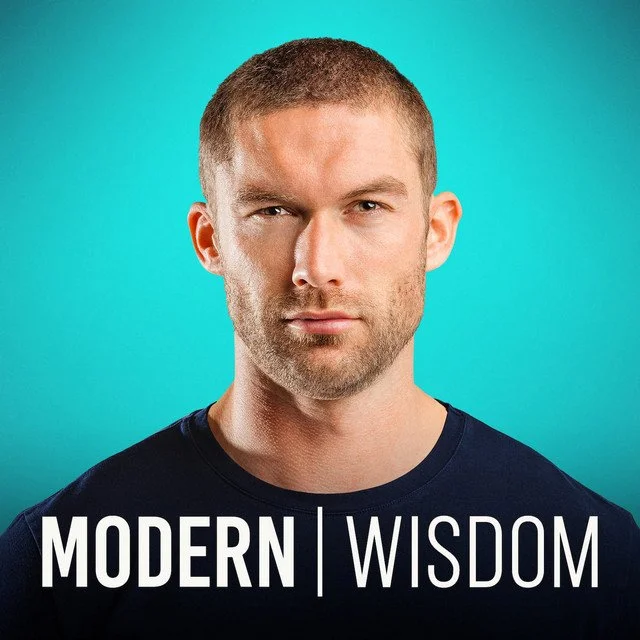What is Happiness Really?
I recently posted a brief post about Happiness and some random tangent about how we shouldn’t be paying for it. I wanted to followup and share a bit more detailed evidence based details from a recent podcast I listened to here. It’s from a Podcast called Modern Wisdom, if you aren’t familiar with it I highly recommend following him as he interviews some of the most brilliant and badass people on the planet. It’s not only inspiring to listen to but he focuses on science backed and tested methodologies in an attempt to remove bias which I admire and respect.
The gist of the interview consists of many things I’ve written about briefly ranging from, how we spend our time and how our mind perceives it, how we feel joy, how hard work and suffering can increase the amount of joy we feel, and lastly how important it is to have a community that not only supports you but you also give back into. I may be summarizing this 90+ min interview too much so here’s a bit more of a detailed breakdown. Again, I highly recommend listening to the whole thing if you have time but if not here’s a quick guide on the contents of the episode.
The Misconceptions About Happiness
One of the primary misconceptions about happiness is the belief that it is a destination rather than a direction. Many people think that if they are unhappy, something is wrong with them, but this is far from the truth. Negative emotions like sadness, anger, and fear are essential; they signal that something outside of us is aversive and help us learn and grow. Happiness is not a state to be attained but a balance of three key "macronutrients": enjoyment, satisfaction, and meaning.
The Three Macronutrients of Happiness
Enjoyment: Enjoyment is different from pleasure. While pleasure is a limbic system phenomenon linked to survival and reproduction, enjoyment is a prefrontal cortex experience that involves people and memories. For example, having a beer alone is a pursuit of pleasure, but sharing a beer with friends involves enjoyment. This combination of pleasure, people, and memory creates true enjoyment, which contributes to happiness.
Satisfaction: Satisfaction comes from achieving tangible goals and feeling a sense of accomplishment. It’s about setting goals and working towards them, which provides a sense of direction and purpose. Satisfaction isn’t about constant pleasure but about having goals and a sense of progress.
Meaning: Meaning involves transcending oneself and connecting with something larger. It can be achieved through faith, family, friendships, and work. Meaning provides a sense of purpose and belonging, which is crucial for long-term happiness.
The Decline of Happiness in Modern Society
The podcast discusses the worrying trend of declining happiness in industrialized countries. Factors such as the rise of social media, cultural polarization, and the impact of the COVID-19 pandemic on social interactions have contributed to this decline. Young adults, especially young women with progressive political views, have seen a significant drop in happiness levels.
The Role of Community
Community plays a vital role in happiness. Humans are social beings who thrive on eye contact, touch, and real-life interactions. The lack of these interactions, exacerbated by social media and remote work, has led to increased feelings of loneliness and disconnection. The podcast emphasizes the importance of maintaining real friendships and family connections, as they provide emotional support and a sense of belonging.
Work and Happiness
The relationship between work and happiness is complex. While success and progress can bring satisfaction, they often don’t lead to lasting happiness if pursued at the expense of personal relationships and well-being. The podcast highlights the importance of finding meaning in work and ensuring it aligns with personal values and goals. Work should be a source of both satisfaction and service to others, contributing to a sense of purpose.
Practical Tips for Enhancing Happiness
Prioritize Real Relationships: Focus on maintaining and nurturing real friendships and family connections. Make time for regular, meaningful interactions.
Seek Enjoyment, Not Just Pleasure: Engage in activities that combine pleasure with people and memories. Avoid solitary pursuits of pleasure that can lead to addiction.
Set Meaningful Goals: Establish goals that provide a sense of direction and accomplishment. Strive for satisfaction through tangible achievements.
Find Meaning: Connect with something larger than yourself, whether through faith, community service, or other forms of transcendence.
Embrace Novelty and Intensity: Break routines and seek new experiences to create lasting memories and a richer life experience.
Conclusion
Happiness is not a state to be achieved but a direction to be pursued. By focusing on enjoyment, satisfaction, and meaning, and by nurturing our relationships and engaging in meaningful work, we can create a more fulfilling and joyful life. I highly recommend listening to the full episode of the Modern Wisdom podcast for a deeper understanding of these concepts and practical insights on living a happier life.
Feel free to share your thoughts and experiences in the comments below. How do you pursue happiness in your daily life?
